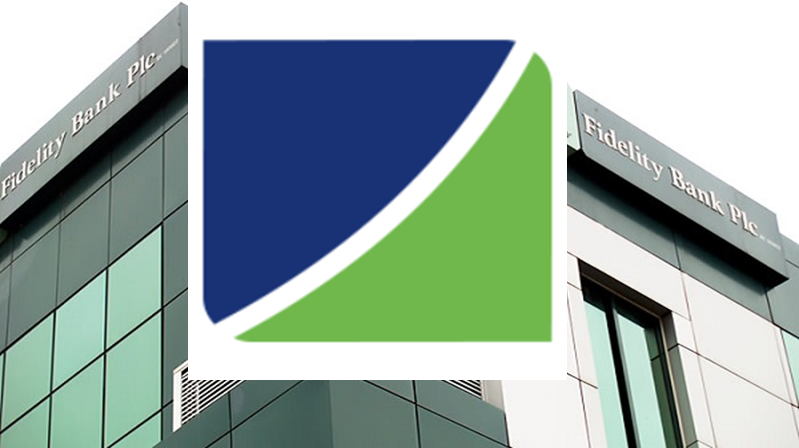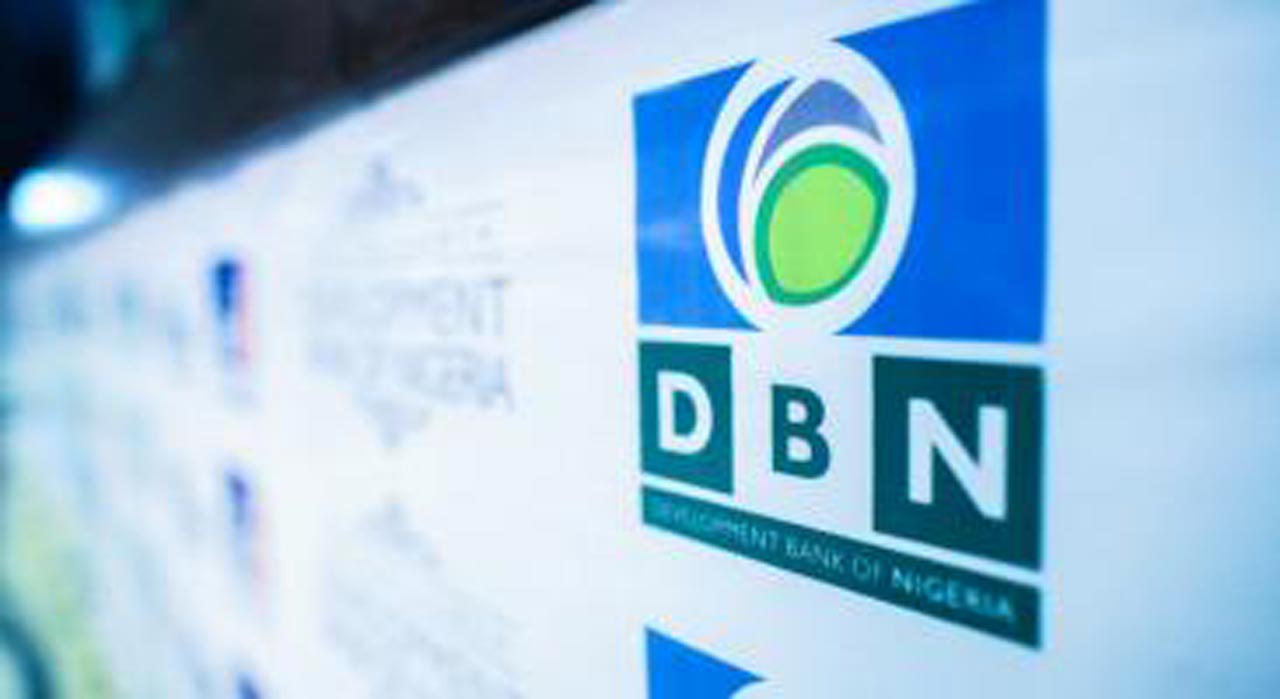Banking
Fitch Affirms Fidelity Bank at ‘B-‘; Outlook Stable

By Dipo Olowookere
Fidelity Bank Plc’s Long-Term Issuer Default Rating (IDR) has been affirmed at ‘B-‘ by Fitch Ratings with the Outlook Stable. A statement yesterday from Fitch said it also affirmed Fidelity Bank’s National Long-Term Rating at ‘BBB(nga)’.
According to Fitch, the IDRs of Fidelity Bank are driven by its standalone creditworthiness, as defined by its Viability Rating (VR) as with that of other Nigerian banks, which are highly conditioned by Nigeria’s operating environment, with the fragile economic recovery restraining banks’ growth prospects and asset quality.
The statement said Fidelity Bank’s VR further reflects a moderate franchise, weak profitability, potentially vulnerable asset quality, some weaknesses in the bank’s funding and liquidity profile as well as adequate capitalisation.
It added that the stable outlook reflects Fitch’s base case expectation that Fidelity Bank’s credit profile is unlikely to change significantly over a one-to-two year period. Fidelity Bank operates exclusively in Nigeria, accounting for 4 percent of banking system assets at end-2017.
The bank’s impaired loans (stage 3 loans under IFRS 9) ratio (7.5% at end-1H18) is slightly lower than the sector average. However, Stage 2 loans are high, measuring at 21% of gross loans at end-1H18, as is the case for many Nigerian banks. Reserve coverage of impaired loans (88% at end-1H18) increased significantly following the implementation of IFRS 9, which we view positively.
Fidelity Bank is exposed to large credit concentrations. The 20-largest loans represented 53% of gross loans and 252% of Fitch Core Capital (FCC) at end-1H18. Fidelity Bank is also exposed to the oil sector, which accounted for 23% of gross loans at end-1H18.
Profitability is weak, but in line with most similarly-sized peers’. Fidelity Bank’s operating profit/risk-weighted assets ratio was 1.8% in 2017, which is weak by emerging markets standards. Weak profitability metrics reflect a low net interest margin, given a high cost of funding that is reflective of Fidelity Bank’s more expensive deposit base. Weak profitability also reflects a high cost-income ratio (68% in 2017) and loan impairment charges that have eroded around 30%-40% of pre-impairment operating profit in recent years.
“We view Fidelity’s capital position as no more than adequate with a FCC ratio of 16.8% at end-1H18. Capital, in our view, is vulnerable to deterioration in asset quality,” Fitch said.
It noted that Fidelity Bank’s loans/customer deposits ratio (92% at end-1H18) is higher than peers’, explained by a higher proportion of non-deposit funding.
In 2017, Fidelity Bank issued a five-year senior unsecured $400 million bond, easing its foreign currency liquidity position. Of this, $256 million was used to repay a $300 million Eurobond in May 2018. Near-term debt repayments are limited, with the next large repayment being in 2022 when the Eurobond becomes due.
Fitch said single-depositor concentration is in line with peers’, with the 20 largest customer deposits accounting for 20% of the total at end-1H18.
It added that Fidelity Bank’s senior unsecured debt is rated in line with the bank’s Long-Term IDR and, therefore, has been affirmed at ‘B-‘.
In Fitch’s view, the likelihood of default on these instruments reflects the likelihood of default of the bank. The Recovery Rating (RR) of ‘RR4’ indicates average recovery prospects in case of default.
Fitch said it believes that sovereign support to Nigerian banks cannot be relied upon given Nigeria’s weak ability to provide support, particularly in foreign currency.
In addition, there are no clear messages of support from the authorities regarding their willingness to support the banking system. Therefore, the Support Rating (SR) and Support Rating Floor (SRF) are ‘5’ and ‘No Floor’, respectively.
“This reflects our view that senior creditors cannot rely on receiving full and timely extraordinary support from the Nigerian sovereign if any of the banks become non-viable,” the rating agency said.
It said Fidelity Bank’s Long-Term IDR is sensitive to a change in its VR, pointing out that downside pressure is most likely to result from a material weakening of loan credit quality, including the migration of stage 2 loans to stage 3, putting pressure on capital adequacy.
Banking
Access Bank Opens Branch in Malta to Strengthen Europe-Africa Trade Ties

By Modupe Gbadeyanka
To strengthen Europe-Africa trade ties, Access Bank has opened a new branch in Malta. It will focus on international trade finance, employing approximately 30 people in its initial phase, with plans for controlled expansion over time.
It was learned that this Maltese branch was established by Access Bank UK Limited, the subsidiary of Access Bank Plc, which is also the subsidiary of Access Holdings Plc, which is listed on the Nigerian Exchange (NGX) Limited.
Access Bank Malta Limited commenced operations after obtaining a banking licence from the European Central Bank (ECB) and the Malta Financial Services Authority (MFSA).
Access Bank said the licence marks a transformative milestone in bolstering Europe-Africa trade flows.
Malta, a renowned international financial centre, and a gateway between the two continents, is strategically positioned to play a pivotal role in advancing commerce and fostering economic partnerships.
This strategic expansion into Malta enables The Access Bank UK Limited to leverage growing trade opportunities between Europe and Africa.
It underscores the organisation’s commitment to driving global trade, financial integration, and supporting businesses across these regions.
“By establishing operations in Malta, we will gain a foothold in a market that bridges European and North African economies, moving us one step closer to our goal of becoming Africa’s Gateway to the World.
“It further enhances our bank’s capacity to support clients with innovative solutions tailored to cross-border trade and investment opportunities,” the chief executive of Access Bank, Mr Roosevelt Ogbonna, stated.
“Europe has emerged as Africa’s leading trading partner, driven by initiatives such as the Economic Partnership Agreements between the EU and African regions and the African Continental Free Trade Area (AfCFTA).
“With Europe-Africa economic relations entering a new phase, The Access Bank Malta Limited is ideally positioned to deepen trade and meet the financing and banking needs of our clients in these expanding markets,” the chief executive of Access Bank UK, Mr Jamie Simmonds, commented.
Also speaking, the chief executive of Access Bank Malta, Renald Theuma, said, “Malta is uniquely positioned as a bridge between Europe and Africa, making it an ideal location for our subsidiary. This move allows The Access Bank Malta Limited to engage more closely with customers in Europe and deliver tailored financial solutions that drive growth and connectivity across both continents.”
Banking
Goldman Sachs, IFC Partner Zenith Bank, Stanbic IBTC, Others to Empower Women Entrepreneurs

By Adedapo Adesanya
The International Finance Corporation (IFC) and Goldman Sachs have announced a new partnership with African banks, including Nigeria’s Zenith Bank and Stanbic IBTC Nigeria to support the Goldman Sachs 10,000 Women initiative, a joint programme launched in 2008 to provide access to capital and training for women entrepreneurs globally.
The two Nigerian banks are part of nine financial institutions from across Africa which have agreed to join the 10,000 Women initiative committing to leverage the business education and skills tools the programme provides to create more opportunities for women entrepreneurs across the continent by providing access to business education.
Others banks include Stanbic Bank Kenya, Ecobank Kenya, Ecobank Cote d’Ivoire, Equity Bank Group, Banco Millenium Atlantico – Angola, Baobab Group, and Orange Bank.
Speaking on this, Ms Charlotte Keenan, Managing Director at Goldman Sachs said – “10,000 Women has had a powerful impact to date, but we know that there are more women to reach and more potential to be realized.
“We are delighted to partner with IFC to supercharge the growth of women-owned businesses across Africa, and mainstream lending to female business leaders. We remain committed to supporting entrepreneurs with the access to education and capital that they need to scale.”
Since 2008, the 10,000 Women initiative has provided access to capital and business training to more than 200,000 women in 150 countries.
“This expanded initiative marks a significant step forward in creating equitable economic opportunities for women in Africa, enabling them to build stronger, more resilient businesses and to realize their entrepreneurial goals,” said Ms Nathalie Kouassi Akon, IFC’s Global Director for Gender and Economic Inclusion.
Goldman Sachs’ 10,000 Women initiative complements the Women Entrepreneurs Opportunity Facility (WEOF), launched in 2014 by Goldman Sachs and IFC as the first-of-its-kind global facility dedicated to expanding access to capital for women entrepreneurs in emerging markets.
Banking
Development Bank of Nigeria Wins Financial Inclusion Leadership Award

By Aduragbemi Omiyale
In recognition of its unwavering commitment to fostering access to financing for Nigerian micro, small and medium enterprises (MSMEs), Development Bank of Nigeria Plc has been rewarded with the Financial Inclusion Leadership Award at the Champions of Inclusion Nigeria Financial Inclusion Awards.
This was at the 2024 International Financial Inclusion Conference (IFIC) organised by the Central Bank of Nigeria (CBN) in collaboration with the World Bank and other stakeholders.
The chief executive of the lender, Mr Tony Okpanachi, said the recognition affirms the company’s efforts in expanding access to financial services for MSMEs in Nigeria.
“We are honoured to receive the Financial Inclusion Leadership Award, which is a testament to our bank’s commitment to expanding access to financial services for all Nigerians. This award recognises our efforts to bridge the financial inclusion gap, particularly for a priority sector like the MSMEs.
“Additionally, this award is a validation of our strategic focus on driving financial inclusion for small businesses, and we are proud to be at the forefront of this initiative that drives that. We will continue to innovate and expand our financial inclusion programmes, ensuring that more Nigerian small and startup businesses have access to services,” he stated.
On his part, the Chief Operating Officer of DBN, Mr Bonaventure Okhaimo, said the accolade demonstrates the firm’s dedication to driving financial inclusion and economic growth in Nigeria.
“This award acknowledges our Bank’s innovative approach to widening opportunities for MSMEs in Nigeria to grow and scale their businesses,” he said.
“This award will motivate us to continue pushing the boundaries of financial inclusion, exploring more innovative solutions and partnerships to expand our reach and impact.
“We are committed to ensuring that more small businesses and startup enterprises in Nigeria have access to financial services, this award will further inspire us to accelerate our efforts in this regard,” he stated.
-

 Feature/OPED5 years ago
Feature/OPED5 years agoDavos was Different this year
-
Travel/Tourism8 years ago
Lagos Seals Western Lodge Hotel In Ikorodu
-

 Showbiz2 years ago
Showbiz2 years agoEstranged Lover Releases Videos of Empress Njamah Bathing
-

 Banking6 years ago
Banking6 years agoSort Codes of GTBank Branches in Nigeria
-

 Economy2 years ago
Economy2 years agoSubsidy Removal: CNG at N130 Per Litre Cheaper Than Petrol—IPMAN
-

 Banking2 years ago
Banking2 years agoFirst Bank Announces Planned Downtime
-

 Sports2 years ago
Sports2 years agoHighest Paid Nigerian Footballer – How Much Do Nigerian Footballers Earn
-

 Technology4 years ago
Technology4 years agoHow To Link Your MTN, Airtel, Glo, 9mobile Lines to NIN






















